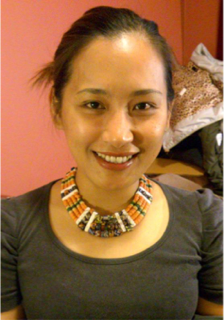Women’s Power: Reflection on the Ecumenical Participation of the Presbyterian Church of Taiwan’s Women by Vavauni
It has been my honor to participate in WCRC’s General Council 2017 this time. The issue of women’s ordination has been constantly mentioned in General Council 2017. When I was there, I also listened closely to the presentation on the issue of gender justice. After General Council, I came back to Taiwan and started to think how Taiwanese female church leaders participate in ecumenical movement for women’s ordination and female leaders in church. Interestingly, I found some connections between my context and ecumenical movement.
Frankly, the issue of women ordination is not so strange to my context. In 1950, as a part of the history of development of Presbyterian Church in Taiwan (PCT) we have already had the first female ordained pastor called Lí Pang Chān (means helping). After Pastor Lí, there was a female theologian, called Ko Thian-hiong. She is an important female theologian as a pioneer in introducing women’s movement in Taiwanese church. By looking back to the history of PCT, we can say that Presbyterian Church in Taiwan has already joined the ecumenical movement for women’s ordination since 1950. Moreover, there are many contemporary Taiwanese theologians in Taiwan, such as Jen Wen, Wang, Chao Wen, Wang, Shu Yin, Shih, Wen Shan, Chen (Hannah Chen), Kai Li, Chiu. Most of them are teaching theology in seminaries in Taiwan. In addition, there are some female church leaders, even if they are not ordained pastors; however, they play essential roles in advocating women movement, for example, Nancy Cheng, ex-member of WCC’s central committee; and Yueh-Wen Lu, former vice president of WCRC. Both of them are actively involved in advocacy for gender and women issues. Therefore, it is proved that PCT has contributed her efforts to ecumenical movements.
However, as I have mentioned above, even if we have some prestigious female church pastors and female church leaders in ecumenical units and young female theologians, when it comes to “decision making processes”, the number of ordained female pastors or church leaders are constantly less than male church leaders. No matter where they are, in church or seminaries, the female participation in decision making still has a long journey to reform.
Moreover, when I look into my context in Taiwan, there is one interesting thing: that is, so many talented female leaders, in pastoral ministry or in office work, usually stand behind men, not standing on the front line or more visible positions. Also, they often give their rights of decision making to men. For some women leaders, they become just the helping roles in church.
How should we interpret the phenomenon? Is that culture of “honoring men” still haunting the church community in Taiwan? Or should we agree with Paul’s saying which positively honors man’s position, “man as the head of a woman?”
Those questions are difficult to answer; however, the result of General Council of PCT this year brings some possibilities for future reformation. In this time, a female pastor of Bunun tribe, Abus, has been elected as a vice secretary of PCT. According to the constitution of PCT, it is possible that Rev. Abus can be the first female Moderator of PCT in history. I believe that PCT has made lots of contributions to women’s issues in ecumenical churches by actively participating in the ecumenical movement. This helps our sisters in ecumenical churches witness, “The Lord’s work cannot fail.”
Lastly, I would like to conclude my article with the words of the German Protestant female theologian, Elisabeth Moltmann-Wendel. I hope that these words can be our confirmation and encouragement. When she talked about women’s identity, she said: “Ich bin gut. Ich bin ganz. Ich bin schoen.” (I am good. I am complete. I am beautiful). My sisters in the Lord, let us fearlessly show our talents.
Vavauni Ljaljegean represented the Presbyterian Church of Taiwan at the July 2017 meeting of the World Communion of Reformed Churches. She writes: I am Vavauni from Taiwan. I am Paiwan, one group of the Taiwanese Indigenous people. I am also a theologian, who studies in Tainan Theological College and Seminary in Tainan, Taiwan. My study field is about the Pacific Islands, including their histories, cultures and faiths. Even as a woman from the margins in my place, I always believe that my voice is loud enough for God to hear.

